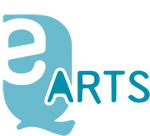The outcomes of all EQ-Arts quality assurance and quality enhancement reviews will be a report written by international subject specialists in the CPAD sector. All such reports will be permanently lodged in the public domain via the EQ-Arts website.
All reports will identify areas of good practice, potential areas for further development and perceived weaknesses. Accreditation and Validation reports will, additionally, include a formal recommendation on the accreditation/validation outcomes along with any conditions or requirements that may, or may not, be attached to these. Should there be any conditions these will be realistically achievable and expressed in such a way that makes clear the timescales for this and what is expected. The institution will have the prerogative to determine what may be the best means to achieve these conditions. If such conditions are not met within the timescales set out, then the recommendation may be not to recommend accreditation or continue validation.
The report also takes full account of the national context of the institution and any other specific circumstances, to ensure that the report does not include external demands that it would be impossible for it to implement (for example actions that are inconsistent with the national laws or statutes that pertain to higher education).
EQ-Arts reports will always consider any steps that have already been taken by an institution in relation to quality assurance and enhancement while also identifying areas of necessary improvement and/or steps towards further enhancements. Reviews and reports will be written in a collegial tone with the intention of supporting and encouraging the further development of an institution’s quality culture.
Each finding determined by the review is substantiated within the information provided by the institution (including the SER and its appendices) and/or evidence gathered during the Evaluation Team’s discussions with the groups of staff, students, graduates and stakeholders during the on-site visits.
Formal Assessment reports are written by, and agreed upon, by all the members of the Evaluation Team. Decisions regarding any conditions and recommendations that are to be included in the report should be agreed unanimously. If any individual member of the team finds that they cannot support a decision regarding any of the conditions and recommendations, they can elect to formulate a substantiated note of dissent to the Board.
Institutions will have opportunity to read a draft copy of the report and comment on any matters of factual error before a final version of the report is approved by the EQ-Arts Board.
Institutions have a right to ask for sensitive information to be redacted in the final report before it is published.
